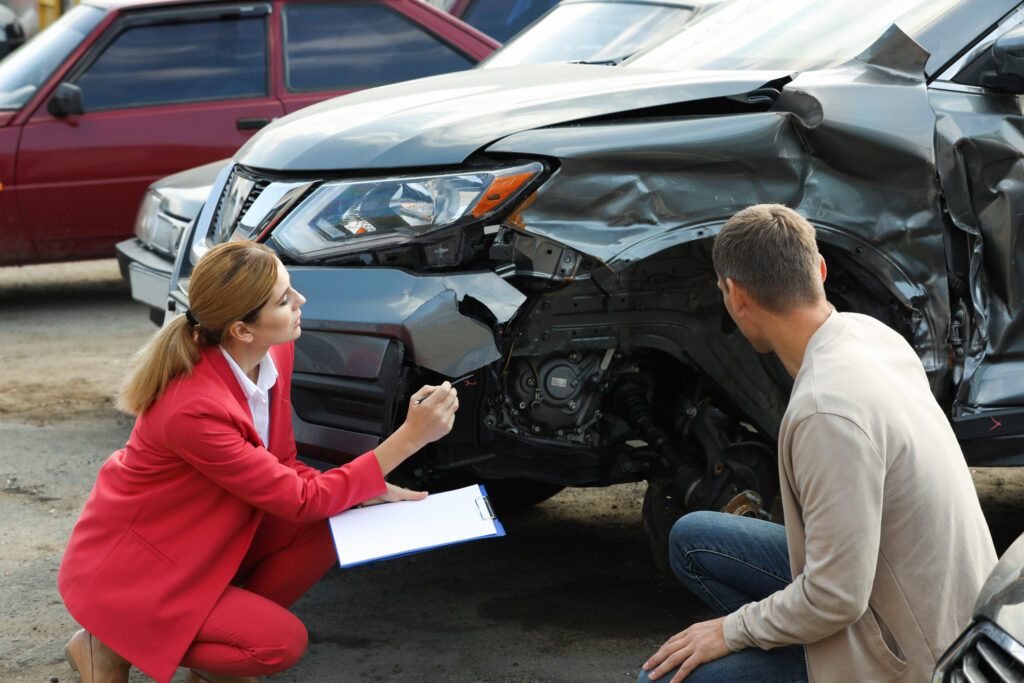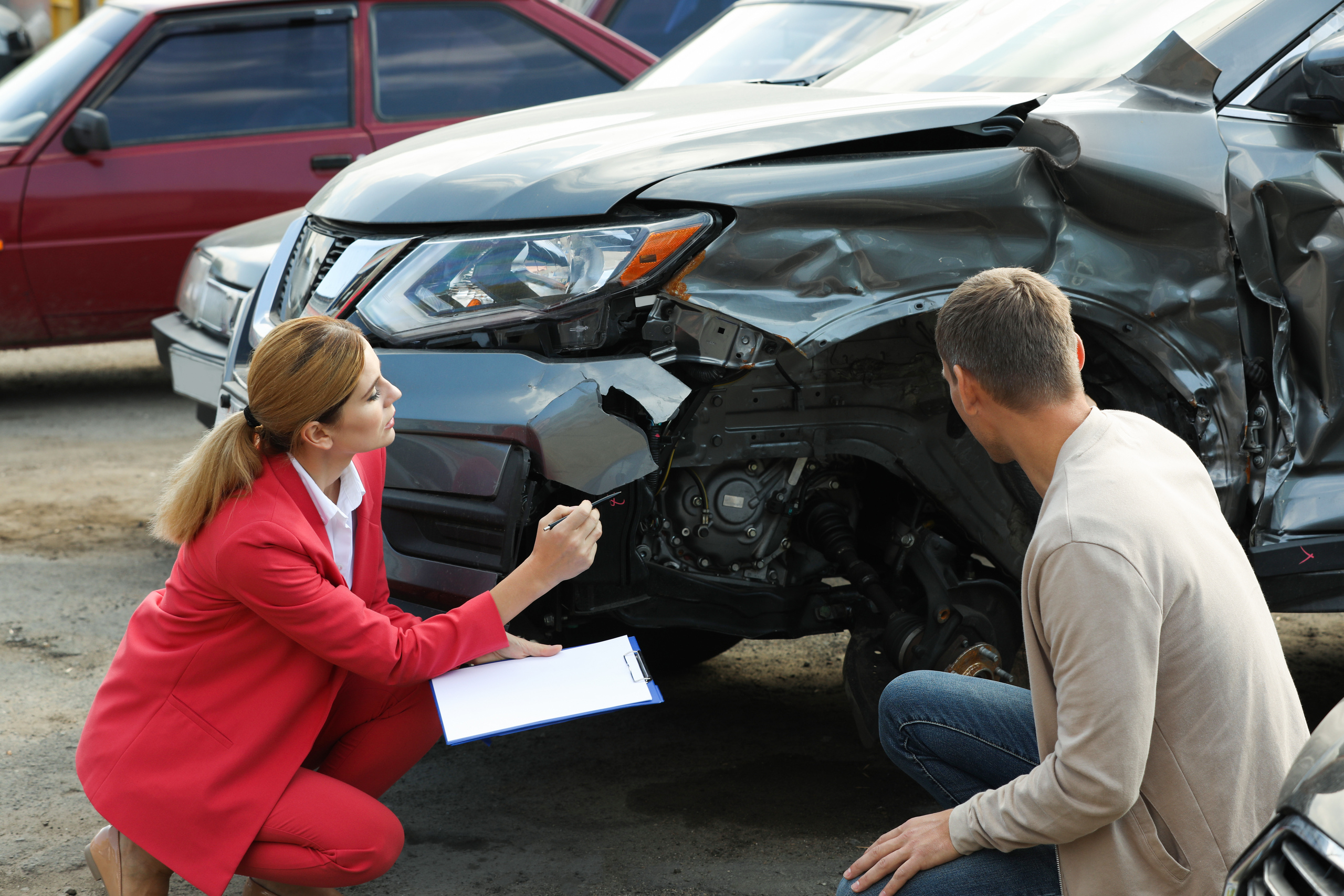Florida Car Accidents & Gap Insurance: Key Coverage Facts
Gap insurance can be a financial lifesaver for Florida drivers who owe more on their car loan than their vehicle is worth. But how does it work, and when do you need it? This comprehensive guide breaks down what you need to know about gap insurance if your vehicle is totaled in a Florida accident.

What Is Gap Insurance?
Gap insurance, or Guaranteed Asset Protection, is a type of coverage that pays the difference—or the “gap”—between the amount you owe on your car loan or lease and the vehicle’s actual cash value (ACV) after it’s declared a total loss.
How Vehicles Lose Value Quickly
New vehicles typically lose a significant portion of their value as soon as they leave the dealership lot. Within the first year, a car can depreciate by as much as 20 to 30 percent. In Florida, this issue is compounded by frequent use, weather exposure, and high accident rates.
Why Florida Drivers Are at Higher Risk
Florida has one of the highest numbers of car accidents in the U.S. due to heavy traffic, tourism, and unpredictable weather conditions. These factors make total loss accidents more common—and the financial risk greater for those with financed vehicles.
When Does Gap Insurance Apply?
Gap insurance only applies under specific circumstances, and it’s important to understand when you’re covered.
Vehicle Declared a Total Loss
Gap insurance becomes relevant when your car is deemed a total loss by your primary auto insurer. This usually happens when the repair costs exceed a certain percentage of the car’s market value.
Actual Cash Value Is Less Than Loan Balance
After a total loss is declared, your insurance company will pay the ACV of the car. If your outstanding loan or lease balance is more than that amount, gap insurance pays the remaining difference to your lender.
Real-World Example: How It Works
Imagine you financed a vehicle for $30,000. After two years, the car is totaled in an accident. The insurance company determines the vehicle’s ACV is $22,000, but you still owe $27,000 on your loan. Gap insurance covers the $5,000 difference.
What Does Gap Insurance Cover?
Gap insurance primarily covers:
- The difference between the ACV and your remaining loan or lease balance
- In some cases, negative equity from a previous vehicle
- Early lease termination charges (depending on the provider)
What Doesn’t Gap Insurance Cover?
While gap insurance is useful, it does come with some important limitations.
1. Your Deductible
Most gap insurance policies do not cover your standard insurance deductible unless specifically stated in the policy.
2. Missed Payments or Late Fees
If you’ve fallen behind on your car loan before the accident, those overdue amounts typically won’t be covered.
3. Additional Add-ons
Items like extended warranties, service contracts, or aftermarket accessories added to your financing agreement are usually not covered under a gap policy.
Gap Insurance vs. Full Coverage: What’s the Difference?
This is a common area of confusion. Full coverage includes liability, collision, and comprehensive insurance. It protects your vehicle and others in an accident or damage event—but it only pays out based on the car’s current market value.
Gap insurance, on the other hand, exists only to protect your loan or lease payoff. It doesn’t repair your car or cover medical bills. The two policies work in tandem, but one does not replace the other.
Do You Need Gap Insurance If You Have Full Coverage?
Yes. Full coverage does not eliminate the financial risk of being “upside-down” on your loan. Gap insurance fills that financial void, especially during the early years of a loan or lease when depreciation outpaces your loan repayment.
How to File a Gap Insurance Claim in Florida
The claims process can seem intimidating, but staying organized helps.
Step 1: File a Total Loss Claim with Your Insurer
First, notify your primary auto insurance company about the accident and begin the total loss process. Your insurer will inspect the vehicle and determine whether it’s a total loss.
Step 2: Receive the ACV Payout
Once confirmed, your insurer will calculate the vehicle’s actual cash value and send that payment to your lender.
Step 3: Gather Documentation
You’ll need:
- Your insurance payout summary
- Your loan or lease payoff statement
- A copy of the accident report or claim file
- Proof of registration and title
Step 4: Submit Your Gap Insurance Claim
Contact your gap insurance provider and submit all required documents. Each company may require specific forms, so check with them in advance.
Step 5: Follow Up Regularly
Gap insurance claims can take several weeks to process. Stay in touch with both your lender and your gap insurer to avoid unnecessary delays.
Common Problems With Gap Insurance Claims
Despite having coverage, many Florida drivers run into trouble during the claims process.
Claim Denials
- You missed payments before the accident
- The required documentation is incomplete
- The policy contains exclusions you weren’t aware of
Delays in Payouts
Some drivers experience long waits for their claim to be processed. This often occurs when the insurance settlement and lender payoff documents don’t align or arrive late.
How Dealership-Sold Gap Insurance Differs
Many drivers buy gap insurance directly from the dealership during financing—but this option may not always be in your best interest.
Higher Costs and Hidden Fees
Dealership gap insurance is often rolled into your loan, meaning you’ll pay interest on it. It’s typically more expensive than coverage from a bank or insurance company.
Policy Limitations
Some dealership policies come with more restrictions and fewer consumer protections. Always ask for a full copy of the policy and compare it to third-party options before making a decision.
Frequently Asked Questions
Will gap insurance cover my entire auto loan if my car is totaled?
Yes, gap insurance is designed to cover the difference between what your primary auto insurance pays (the actual cash value of your vehicle) and the amount you still owe on your car loan or lease. However, this only applies if the policy is active, your loan payments are up to date, and the remaining balance is eligible under your gap policy terms. It will not cover any past-due amounts, late fees, or items not listed in your financing agreement.
Is my deductible covered under gap insurance?
In most cases, your insurance deductible is not covered by gap insurance. Some providers do offer deductible reimbursement as an optional feature, but this must be specified in the policy. It’s important to review your contract carefully or ask your provider directly whether deductible coverage is included.
Can my claim be denied if I missed payments on my car loan?
Yes, missed or late loan payments are one of the most common reasons gap insurance claims are denied. Gap coverage typically only applies to the balance that is current and due on your loan at the time of the accident. If your loan is delinquent, those past-due amounts may be excluded from the coverage, which means you could still owe money out of pocket.
What happens if I rolled over negative equity from a previous loan?
Some gap insurance policies cover negative equity from a previous vehicle loan, but not all do. If you traded in a car that had an unpaid loan balance and rolled that amount into your new loan, your gap policy may or may not include it in the total balance it will pay. This is one of the most important policy details to verify before purchasing gap insurance.
How long does a typical gap insurance claim take to process?
The timeframe can vary depending on the provider and how quickly you submit all required documentation. On average, a gap insurance claim in Florida can take two to six weeks to process. Delays often occur if paperwork is missing, if the primary insurance payout hasn’t been finalized, or if your lender takes time to provide the necessary loan payoff information.
Is Gap Insurance Worth It in Florida?
If you’re financing or leasing a car in Florida, especially a newer model with a small down payment, gap insurance is highly recommended. Vehicle values can drop quickly, and accidents happen frequently.
Having gap insurance ensures that if your vehicle is totaled, you’re not left paying thousands of dollars out of pocket on a car you can no longer drive. It’s a small investment that can prevent large financial consequences.
Contact Lawlor, White & Murphey Today
If your gap insurance claim is denied, delayed, or unfairly handled, don’t wait. Speak to an experienced Florida attorney who can help you understand your policy, negotiate with the insurer, and ensure your rights are protected.
Legal professionals can offer valuable support when your financial stability is at risk. A denied gap claim doesn’t have to be the end of the road—help is available. Contact us today to schedule a free consultation.
